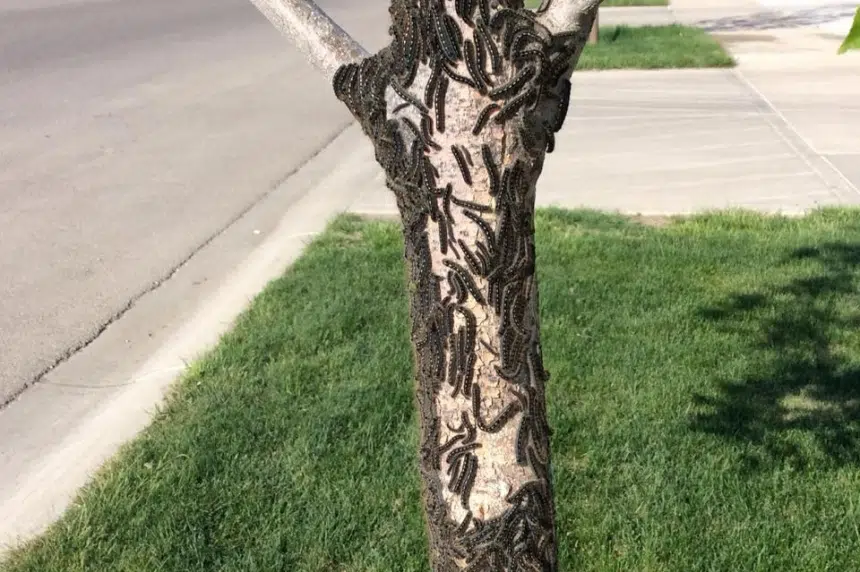For people enjoying a walk beneath the new leaves of the trees, it can be jarring to suddenly see a mass of caterpillars or worms.
The hot temperatures of early spring have led to an early spike in tent caterpillars across Regina. People are posting pictures of tree trunks covered in bugs, especially in Harbour Landing.
Russell Eirich is the manager of forestry, pest control and horticulture for the City of Regina. He said they have had about 20 service requests to deal with tent caterpillars so far this season.
“We are definitely seeing a bit of a peak in the cycle for tent caterpillars right now,” he said. “We’re seeing it in newer areas. Tent caterpillars tend to go around green ash trees. When they’re fully leafed-out they like to feed on those. If not then they’ll move on to chew the chokecherry trees.”
Eirich explained tent caterpillars are spread evenly across the city, but people are likely noticing them more in newer neighbourhoods like Harbour Landing because the trees are smaller.
“With the larger trees they’re up in the canopy of the trees,” he said. “The one interesting thing with tent caterpillars is they tend to come down and they like to congregate together on the trunk early in the morning when it’s cool out and then when it heats back up during the day they go back up into the canopies. So that’s when people seem to notice the big mass of gooey bugs on their trees.”
Tent caterpillars are a defoliating insect that eats leaves, and they can do damage to trees over the long term. However, Eirich noted that since this is the first year the population has spiked in a while, they aren’t likely to cause any serious damage to trees.
For people who want to get rid of tent caterpillars in their own yards, Eirich suggests using a BTK spray you can buy at any garden centre, or simply going outside with gloves in the morning and squishing them.
He said city crews will be treating trees for tent caterpillars during the regular cankerworm spray program starting next week.
“We will spray some of the trees for tent caterpillars alongside the trees that we’re spraying for cankerworms because the two species feed on different trees,” Eirich said.
Eirich says you can call the city for service if you notice a really bad infestation, but notes that the caterpillars will only last for about two to three weeks.
While tent caterpillars are fuzzy in appearance, cankerworms are not. Eirich noted that the cankerworm population has been at a record low in Regina for the past three years, but he is noticing that a natural increase in their numbers.











